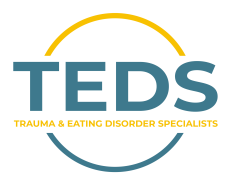
About Trauma
Most of us will have some impact of a traumatic experience within our lives, such as losing a loved one, and some people are surprised at what we define as being exposed to a trauma as it can affect people in different ways so it is good to remember what one person defines as traumatic may not be to another. There are, however, some experiences that create common long-term challenges for those involved and often people may need support to overcome these difficulties.
The definition for trauma refers to a “deeply distressing experience that overwhelms a person’s ability to cope, resulting in lasting negative impacts on their emotional, physical, and psychological well-being”.
There are three main types of trauma.
Acute
a single event
Chronic
repeated exposure to traumatic events
Complex
Multiple and/or varied traumatic events
Some examples may include (but are not limited too)
- Accidents
- Loss of loved one
- Any type of abuse
- Assault, mugging, or robbery
- Bullying or discrimination
- Childhood neglect
- Witnessing violence, abuse, or a crime
- Threatening environment
- Being in a life-threatening situation/fear of safety
- Natural disaster
- Terrorist attack
- War


The effects of experiencing a traumatic event will vary but can include an array of physical ailments such as stomach/bowel issues, headaches, chronic fatigue and body pain/aches, sleep disturbances and stress related bodily issues which cannot be explained by other underlying medical problems. It can cause emotional distress such as anxiety, hypervigilance, low mood, and an inability to regulate emotions.
Psychological impacts may result as difficulties in relationships, work/occupation and social engagement, negatively influence someone’s beliefs about themselves within their outlook on the world, their self-esteem, and confidence.
Traumatic experiences can lead to a greater vulnerability of developing mental health conditions such as post-traumatic stress disorder (PTSD), eating disorders, depression, anxiety, and addictions such as the excessive use of alcohol or drugs as a means of coping.
Trauma therapy is a specialist approach formulated to support individuals to heal from past distressing experiences. The therapy can provide a safe space to process traumatic emotions, helping to understand the events and reduce negative symptoms by providing healthier coping strategies, rebuild resilience, restore self-esteem and confidence, and regain control within someone’s life.
The process may be challenging, but a life recovered is possible.

